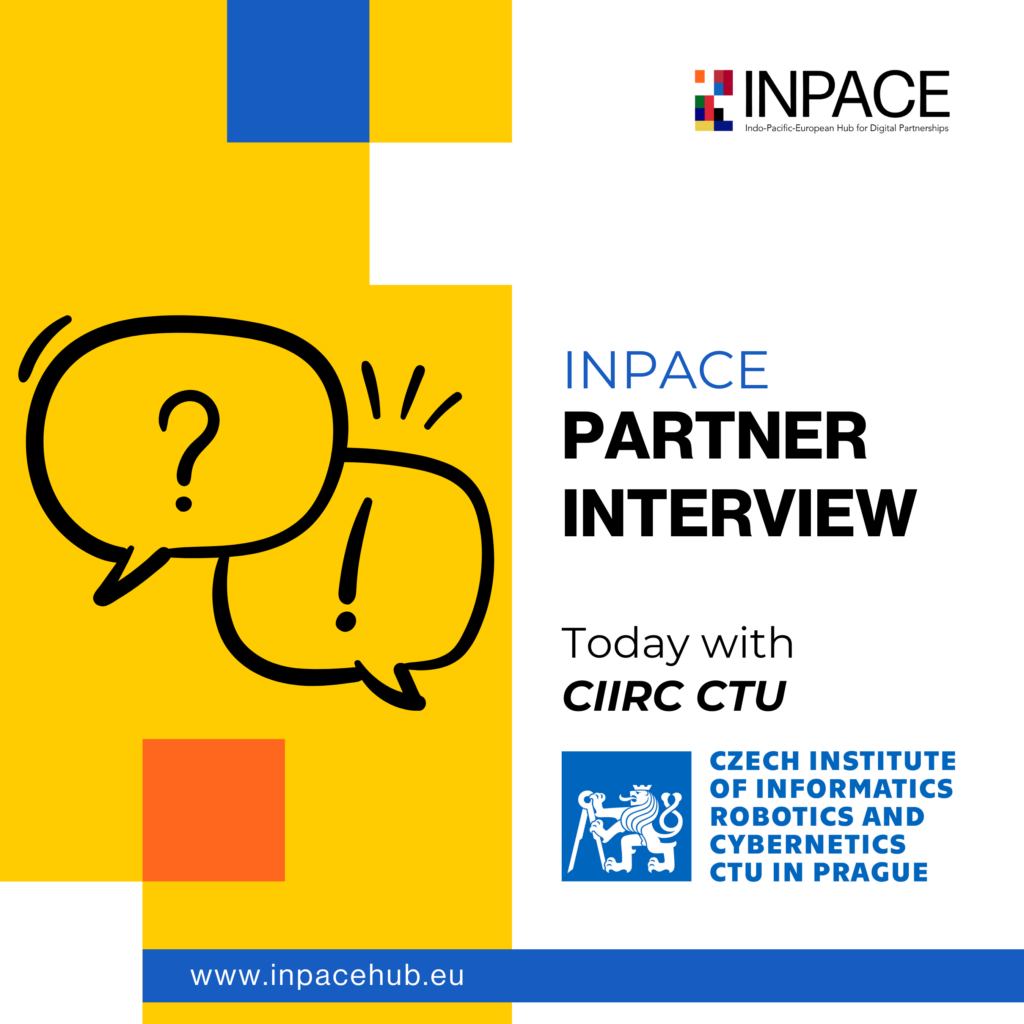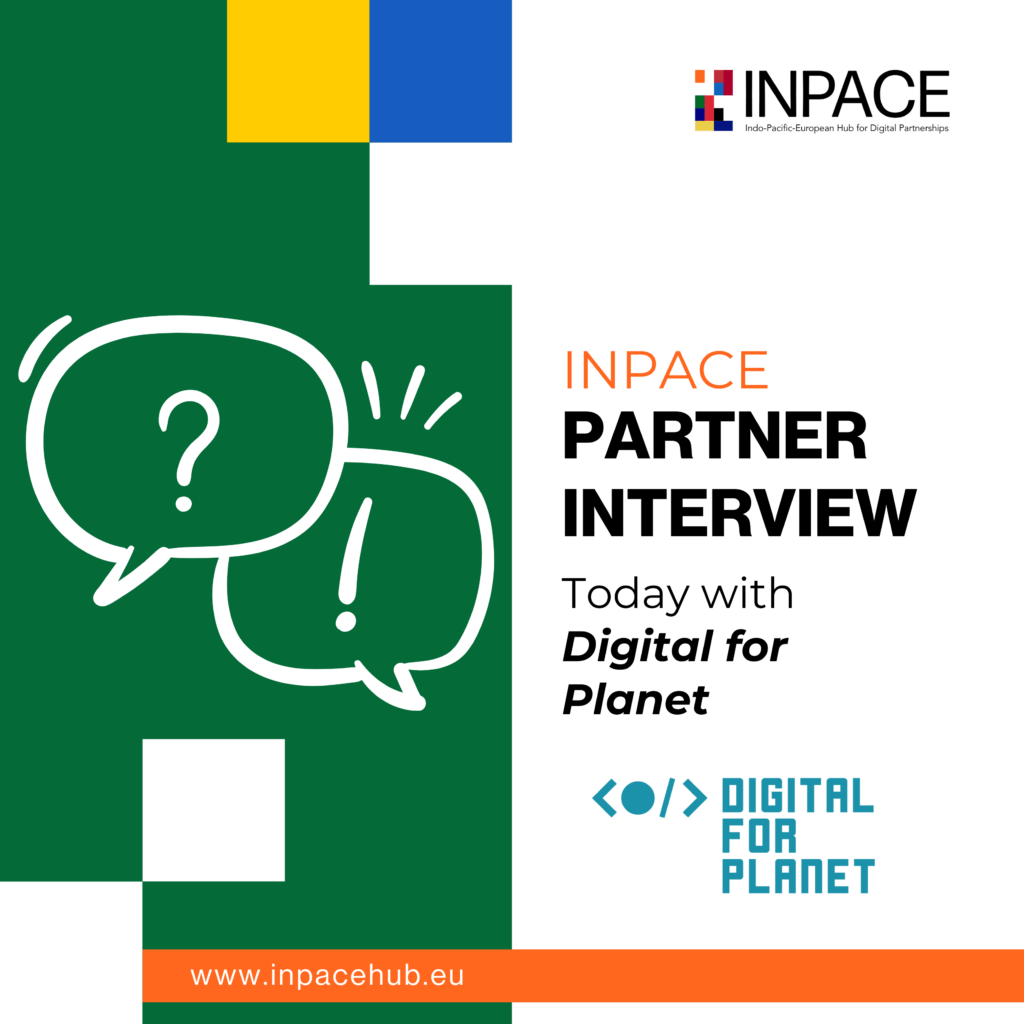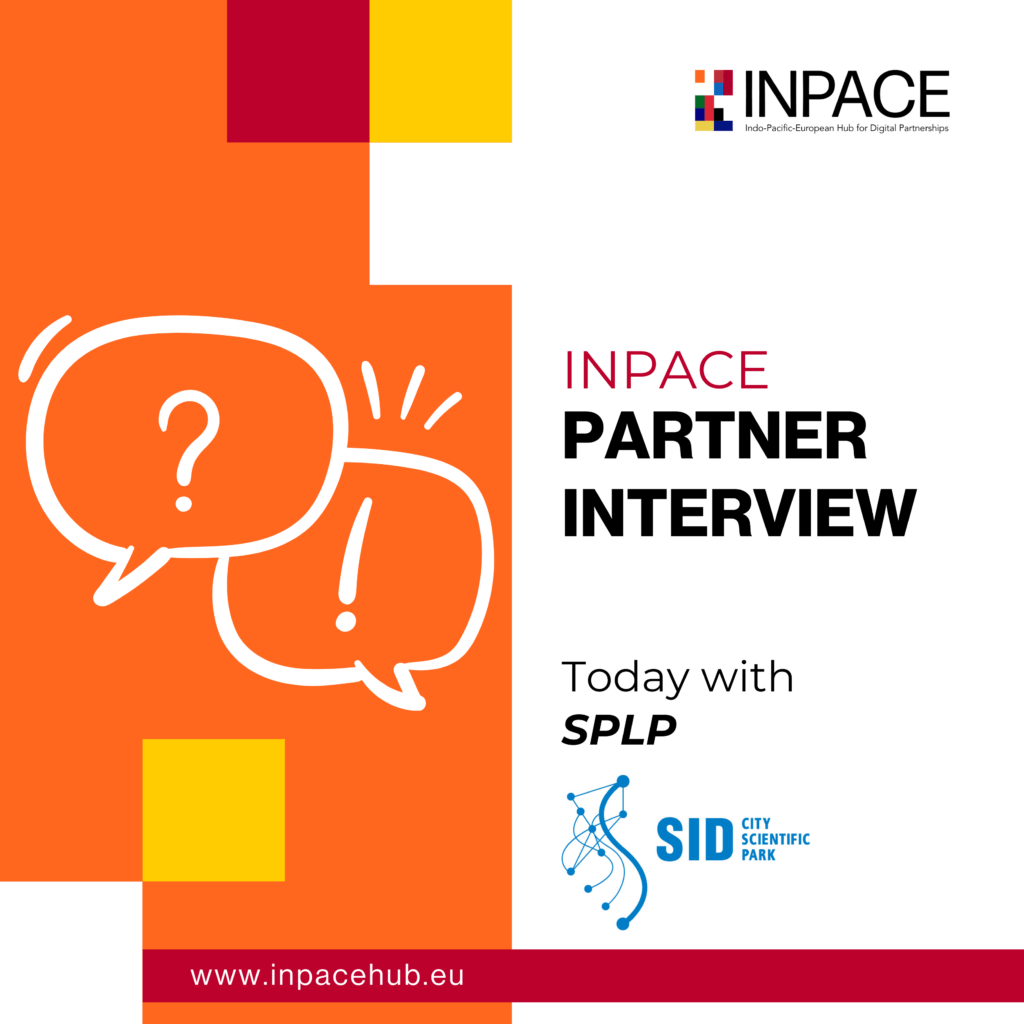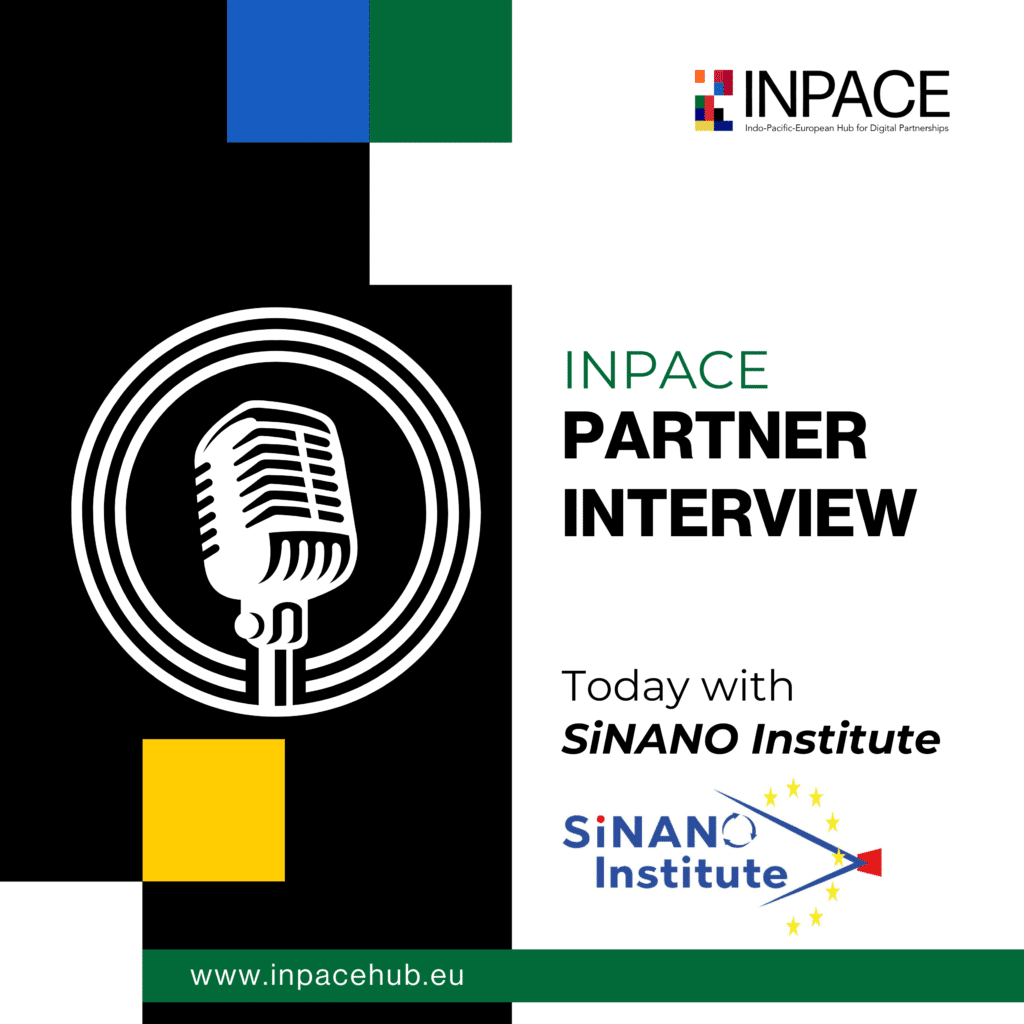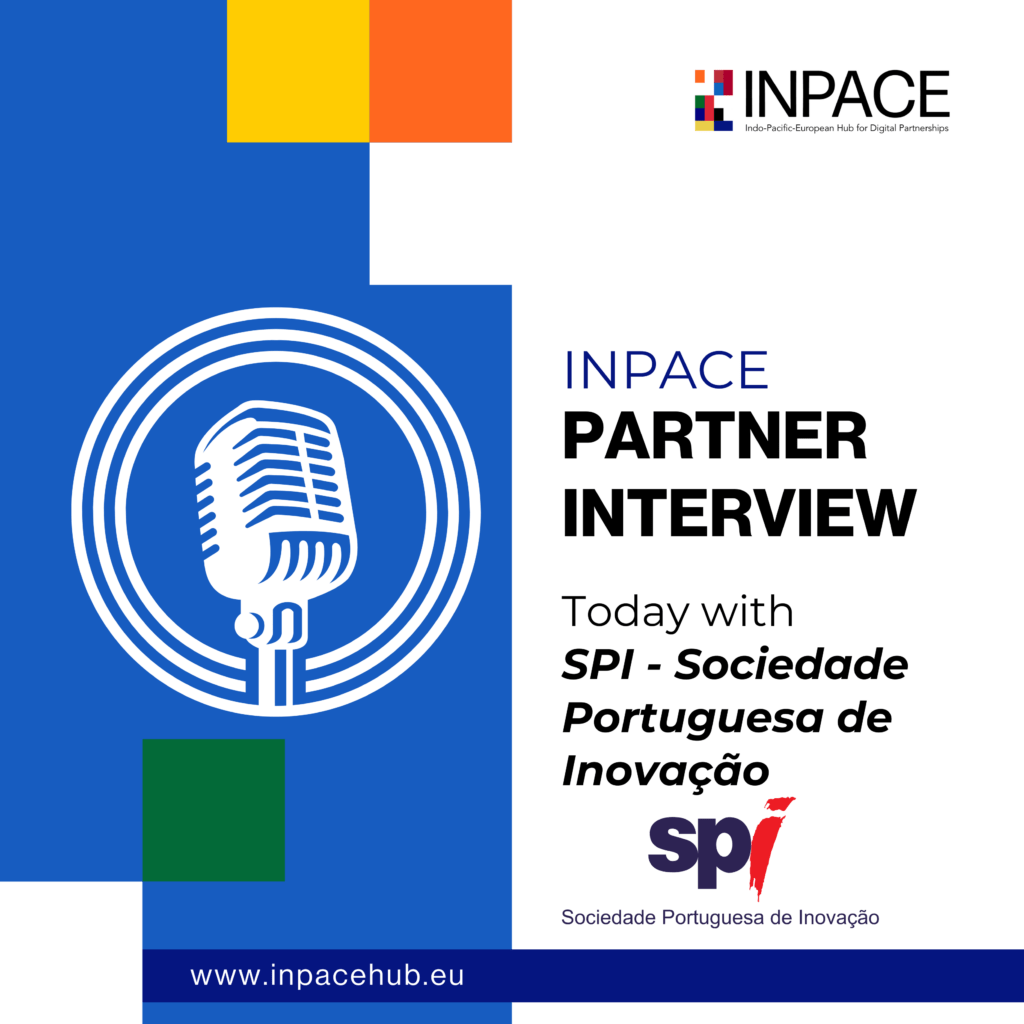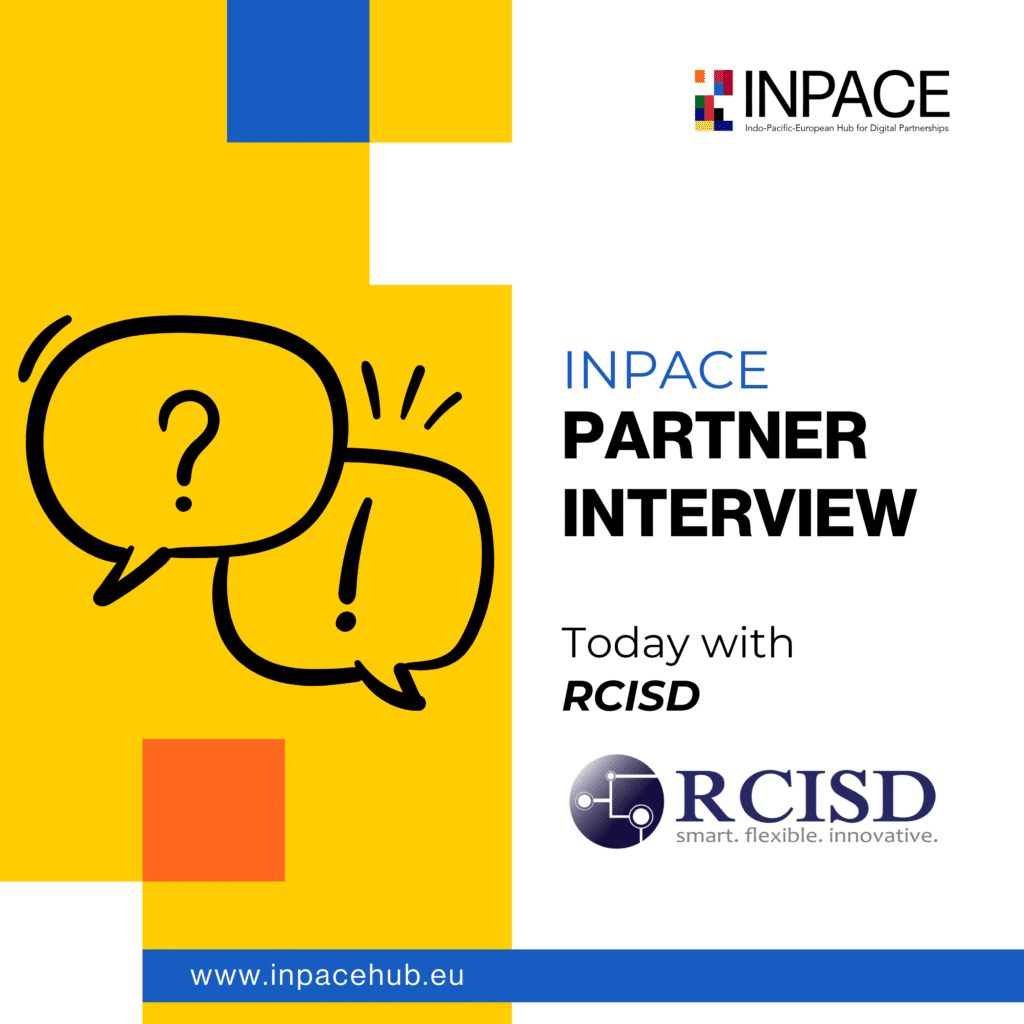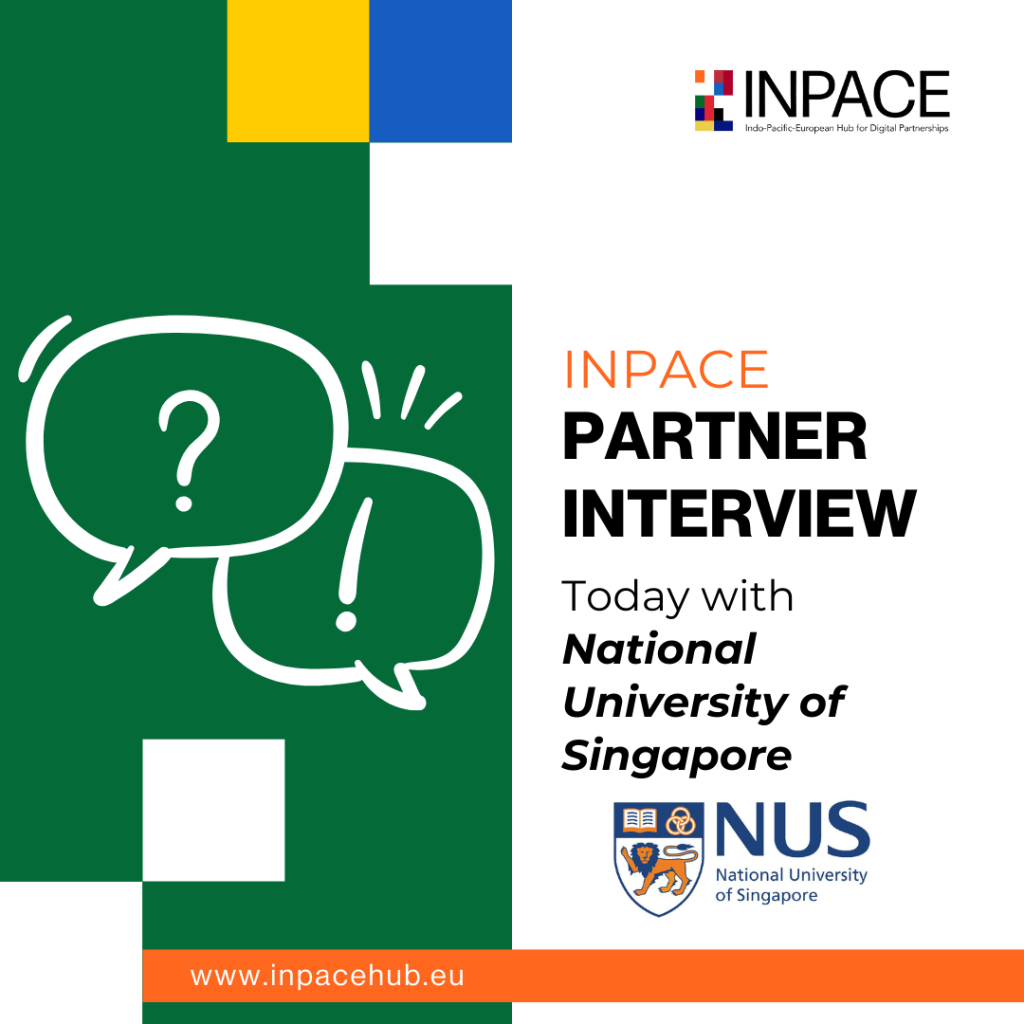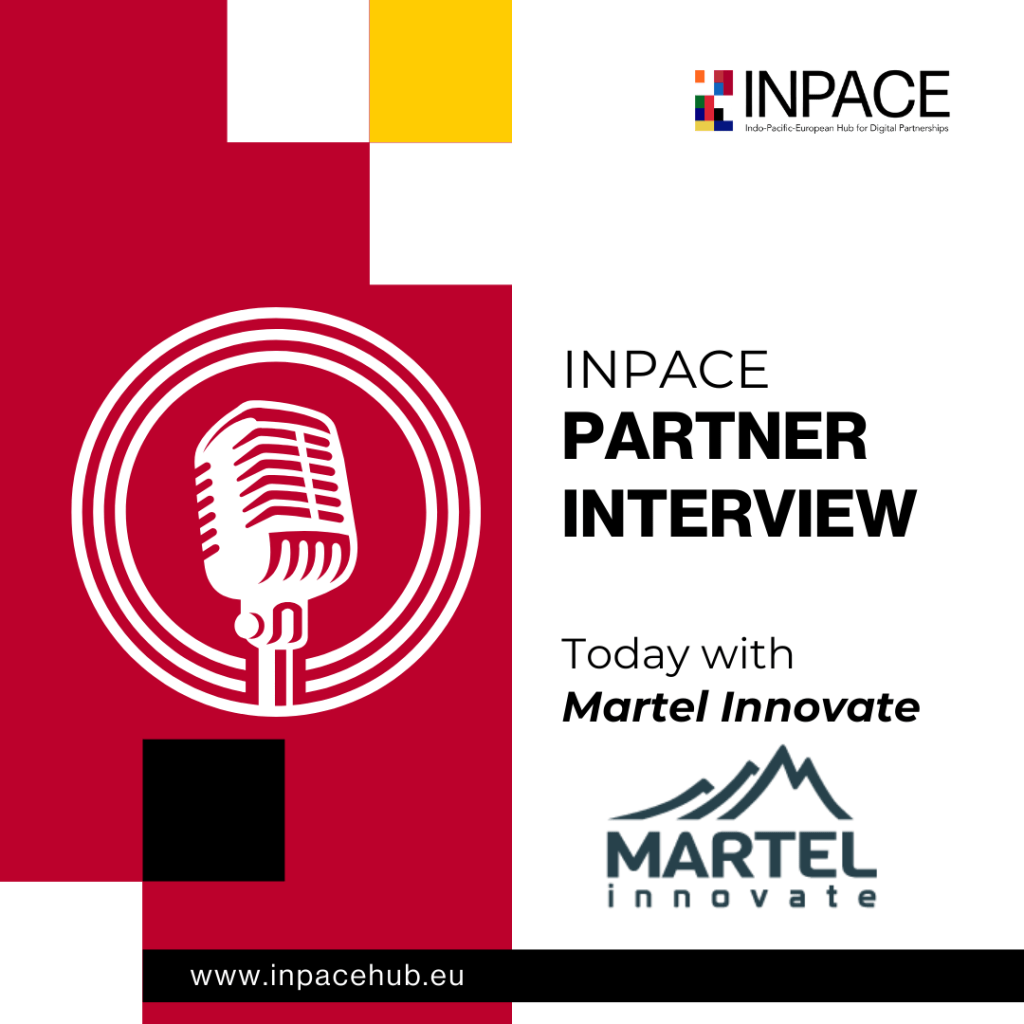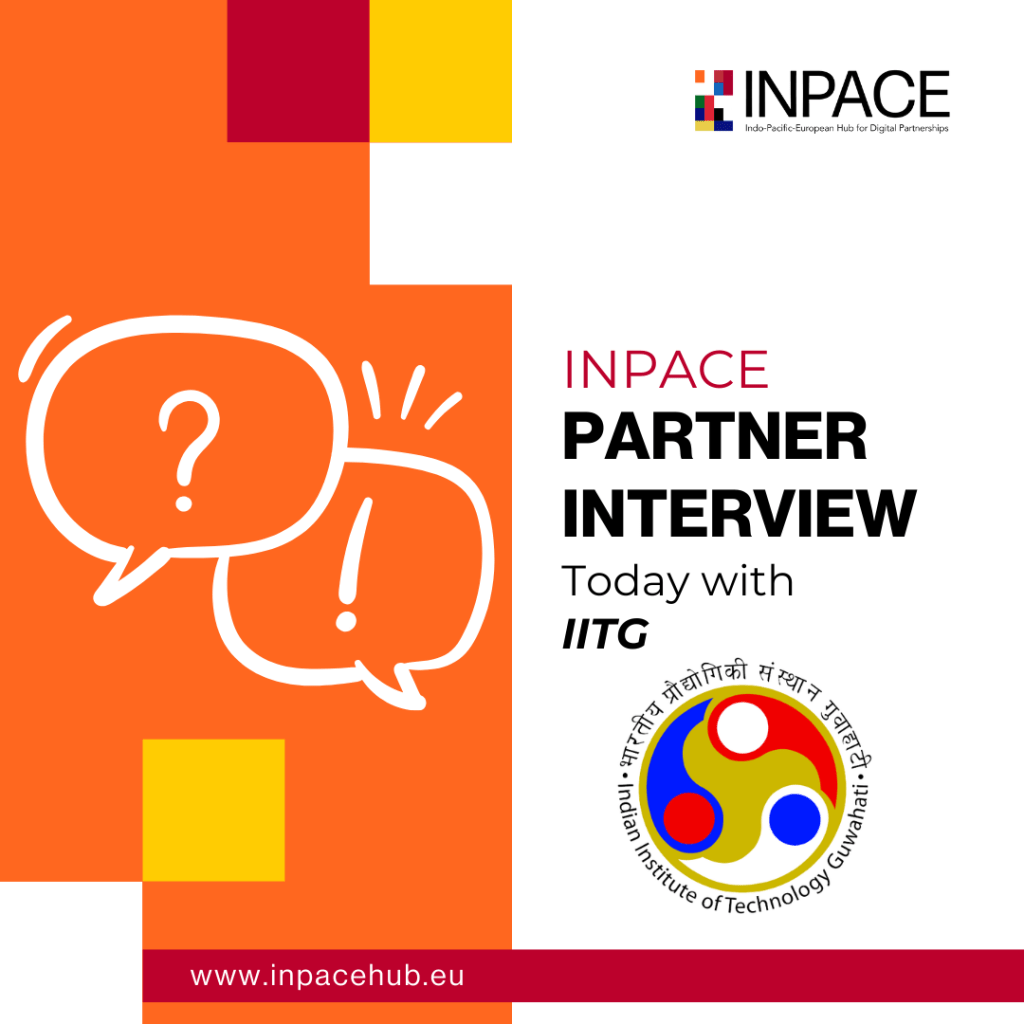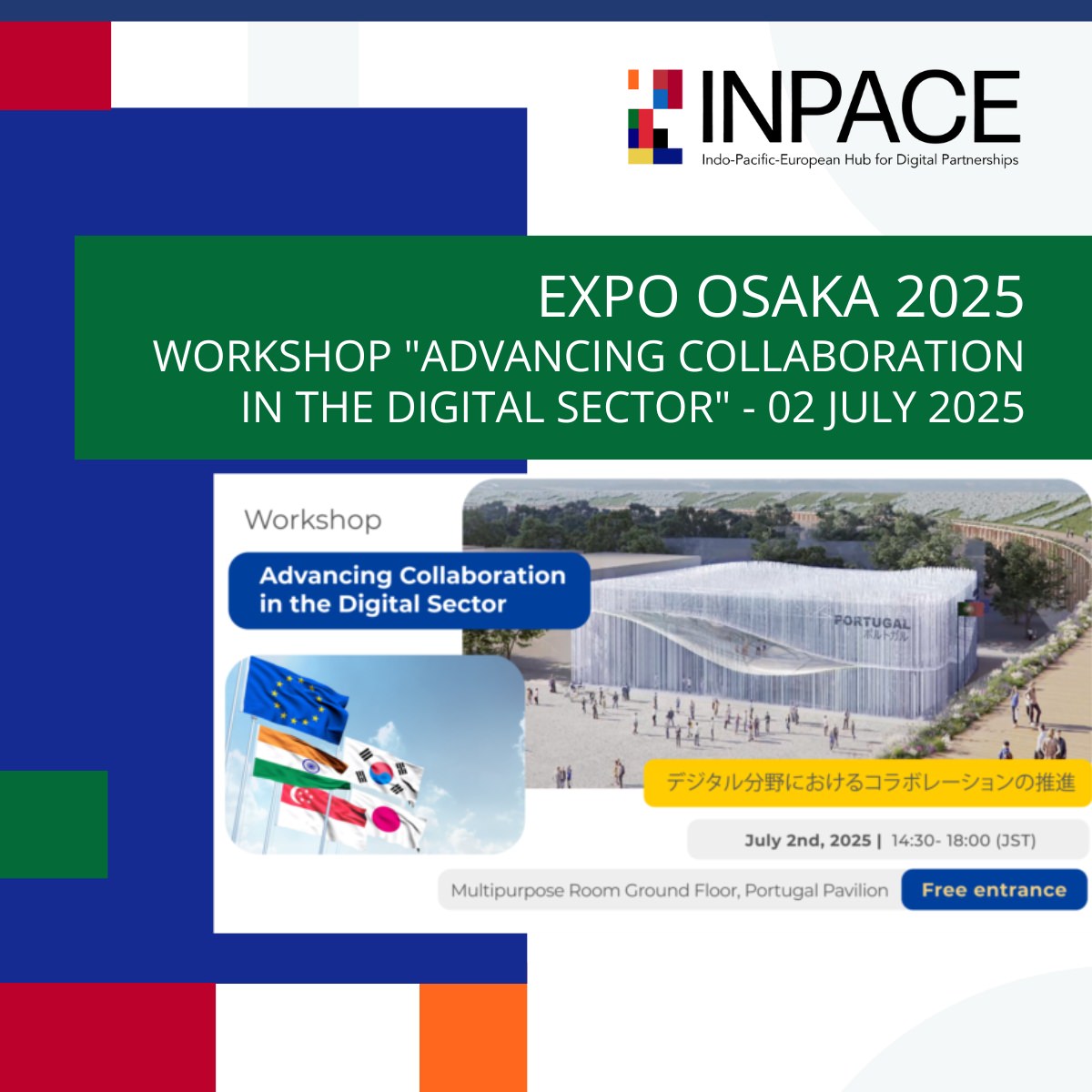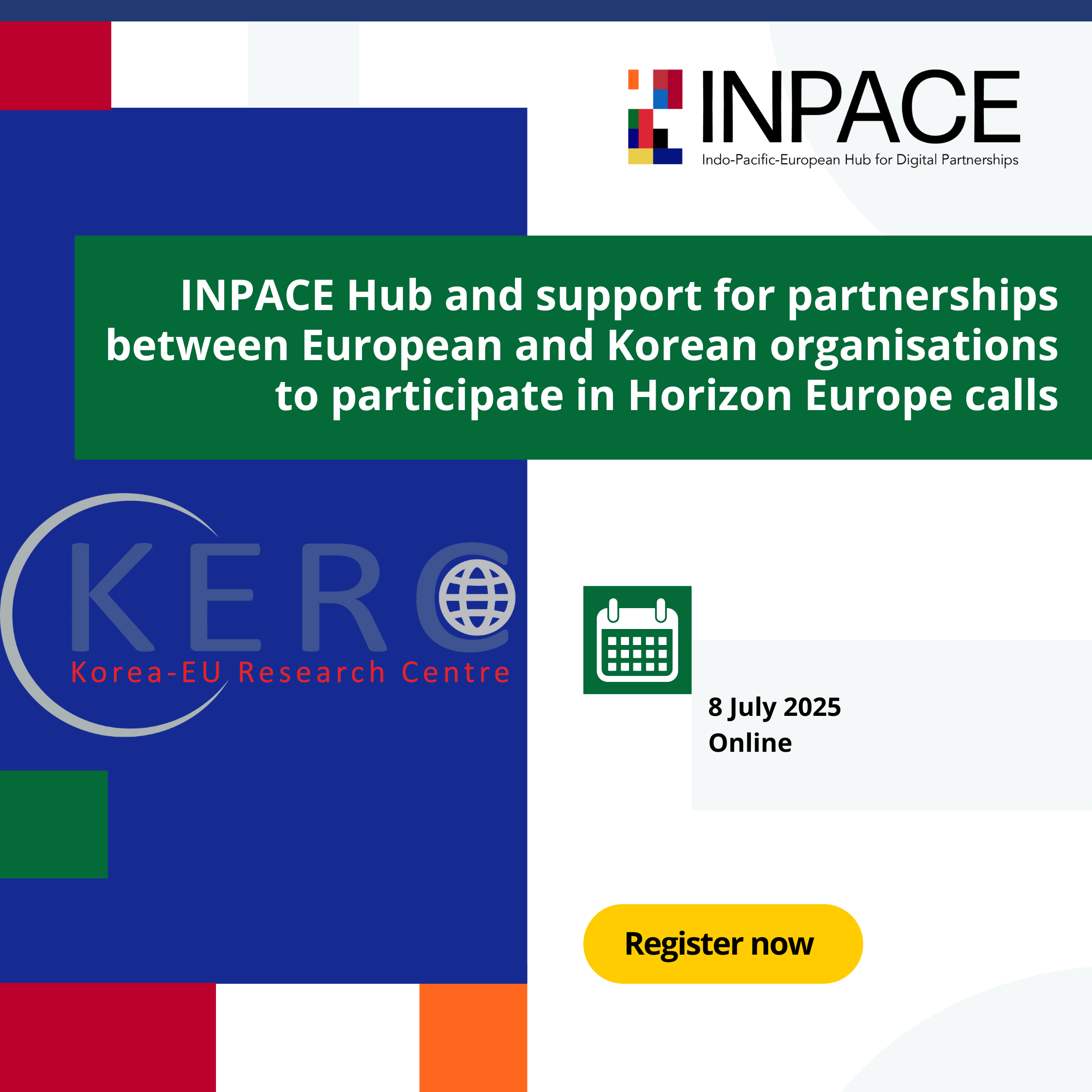Digital Digest September 2024
Digital Digest September 2024
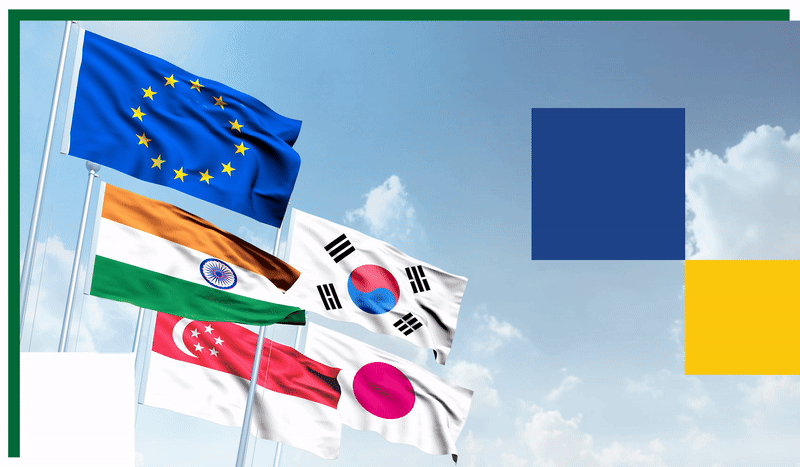
What is INPACE?
INPACE is a Coordination and Support Action Project funded by the European Commission’s Horizon Europe Programme starting January 2024 and running until June 2027.
INPACE’s mission is to support the implementation of the Digital Partnerships between the European Union and Japan, South Korea, Singapore, as well as the Trade and Technology Council with India.
Powered by a consortium of 21 European and Asian partners, the project establishes a multi-stakeholder Hub for collaboration in digital technologies between Europe and the Indo-Pacific region and fosters long-term cooperation in key digital technologies by bringing together experts and stakeholders from both regions.
Public-Private Stakeholders Workshop – Report and lessons learned
The European Commission published a report about the public-private stakeholder workshop ahead of the 2nd EU-Japan digital partnership council, highlighting what needs to be considered when so many countries and partners are involved.
INPACE Kick-off Meeting in Nice Marks the Start of a New Era in Digital Partnerships
The INPACE Asian and European partners came together to align on strategic goals and activities, and laid the groundwork for a collaborative EU-Indo-Pacific Community Platform.
International Symposium on Digital Technologies and Policies: Supporting the Indo-pacific-European Digital Partnerships
INPACE is organising its first 2-day Symposium in Seoul, Republic of Korea, which will explore the latest advancements in digital technologies and transformative applications in the Indo-Pacific Region and in Europe.
The event will address the intersections of technology and policy, fostering dialogues between experts from both regions to strengthen Digital Partnerships with the Republic of Korea, Japan, Singapore, and the cooperation with India in the TTC context.
21 October 2024 – 22 October 2024
Daeyang AI Center, Sejong University, Seoul, Republic of Korea

Partner Interviews
Read more about the consortium, what their role in the project is and how they think INPACE will contribute to the digital landscape in the EU and Asia.
Our Events
Public-Private Stakeholders Workshop – Report and lessons learned
The European Commission published a report about the public-private stakeholder workshop ahead of the 2nd EU-Japan digital partnership council, highlighting what needs to be considered when so many countries and partners are involved.

INPACE Kick-off Meeting in Nice Marks the Start of a New Era in Digital Partnerships
The INPACE Asian and European partners came together to align on strategic goals and activities, and laid the groundwork for a collaborative EU-Indo-Pacific Community Platform.

International Symposium on Digital Technologies and Policies: Supporting the Indo-pacific-European Digital Partnerships
INPACE is organising its first 2-day Symposium in Seoul, Republic of Korea, which will explore the latest advancements in digital technologies and transformative applications in the Indo-Pacific Region and in Europe.
The event will address the intersections of technology and policy, fostering dialogues between experts from both regions to strengthen Digital Partnerships with the Republic of Korea, Japan, Singapore, and the cooperation with India in the TTC context.
21 October 2024 – 22 October 2024
Daeyang AI Center, Sejong University, Seoul, Republic of Korea

Partner Interviews
Read more about the consortium, what their role in the project is and how they think INPACE will contribute to the digital landscape in the EU and Asia.
Our Events


The INPACE project has received funding from the European Union’s Horizon Europe Research and Innovation Programme under grant agreement 101135568. Views and opinions expressed are however those of the author(s) only and do not necessarily reflect those of the European Union. Neither the European Union nor the granting authority can be held responsible for them. This work has received funding from the Swiss State Secretariat for Education, Research and Innovation (SERI).

